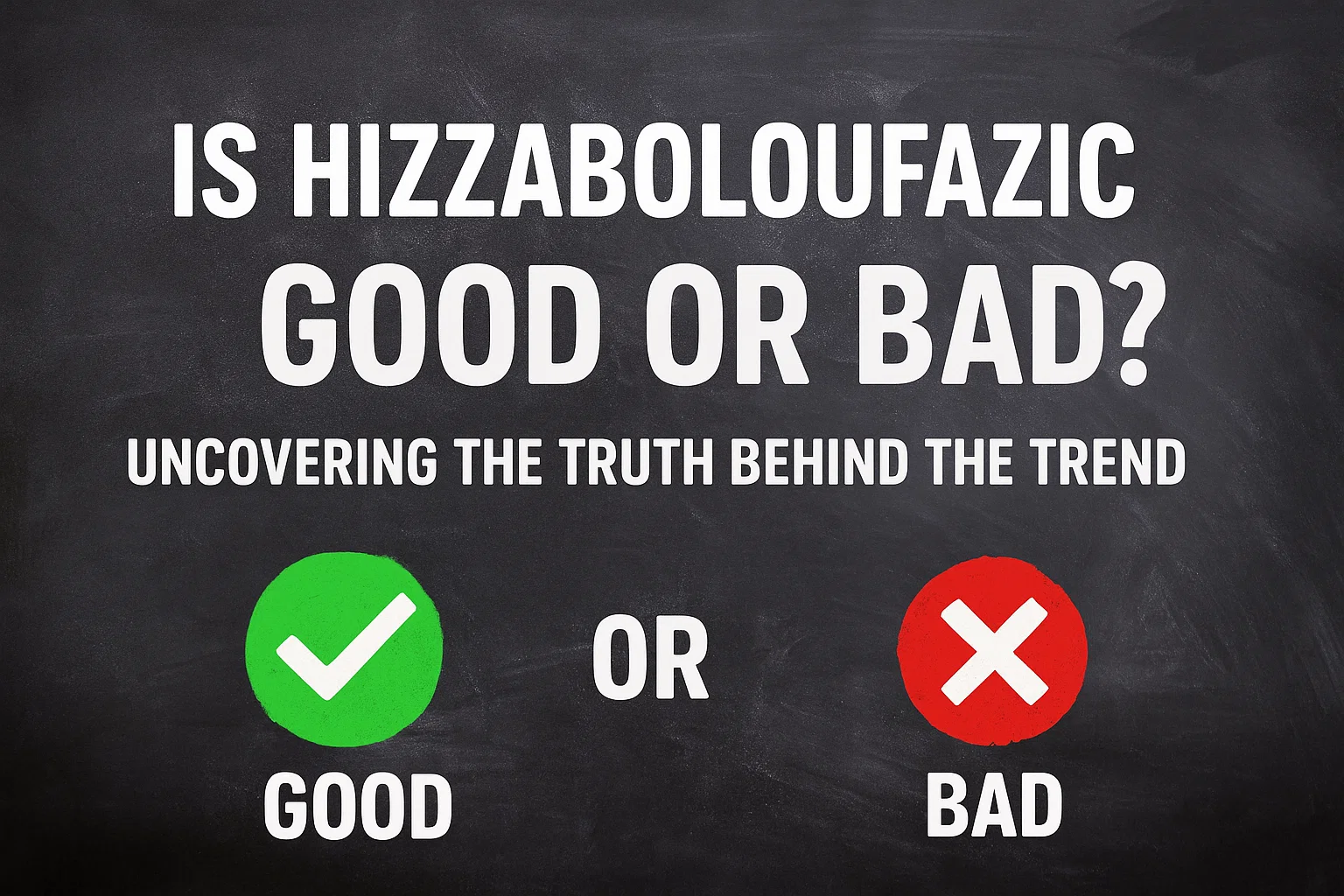In the age of rapid digital communication and viral trends, unusual names and terms often surface that pique public interest. One such term currently circulating is Hizzaboloufazic. Whether you’ve come across it in an online discussion, a trending hashtag, or through a product review, the question remains: Is Hizzaboloufazic good or bad?
This article explores the possibilities behind the name, potential interpretations, and how to assess its impact—especially if it’s associated with a product, idea, or movement.
What Is Hizzaboloufazic?
As of now, Hizzaboloufazic does not appear in mainstream scientific literature, popular product databases, or officially recognized brand registries. This raises two possibilities:
- It could be a fictional or code-like name, possibly used in internet culture, gaming, or online branding.
- It might be a new or lesser-known product, service, or character name being tested or soft-launched in niche communities.
Its exotic and abstract structure may be a creative marketing tactic designed to stand out, much like how tech companies or video games invent unique names (e.g., “Zynga,” “Xenoblade,” or “Elon’s Neuralink concepts”).
Good or Bad? How to Judge Something New Like Hizzaboloufazic
Without direct evidence of what Hizzaboloufazic actually is, we need a framework to assess whether it’s “good” or “bad.” Below are some guidelines for evaluating new terms, especially when tied to digital or consumer experiences.
1. Check the Context
How and where you found the word matters. Did someone mention it in a positive review or a negative rant? Was it in a game, a meme, or a tech demo?
For example:
- If it’s part of a digital app, check its reviews and ratings.
- If it’s a new product, look for safety data, ingredient lists, or certifications.
- If it’s a movement or ideology, look at its values and the actions of those promoting it.
If Hizzaboloufazic is being linked with suspicious practices or harmful effects, that leans toward the “bad” side.
2. Community Feedback
Online forums like Reddit, Quora, and niche Discord servers often discuss obscure or emerging trends long before they hit mainstream headlines. Search for:
- User experiences
- Pros and cons
- Expert opinions (if any)
If people are praising it for innovation, performance, or positive effects, then it may be a valuable discovery. On the other hand, complaints about scams, side effects, or misleading claims point in the opposite direction.
3. Is It Safe or Ethical?
Sometimes new terms are linked with supplements, digital currencies, or social campaigns. Before jumping in, ask:
- Is it FDA-approved (for consumables)?
- Is it open-source or transparent (for software)?
- Does it exploit people, data, or the environment?
If Hizzaboloufazic is a product being marketed without proper safety, testing, or ethical considerations, it’s a red flag.
4. Intent Behind the Name
Many names are crafted to evoke curiosity, trust, or authority. But some are used to confuse, manipulate, or hide true intentions.
If a company or influencer is pushing “Hizzaboloufazic” without explaining what it is or how it works, it could be a branding trick or a scam.
Ask:
- What does it claim to do?
- Is there any scientific or factual backing?
- Who benefits from its use?
A good product or concept is transparent. If Hizzaboloufazic lacks clear information, it may not be trustworthy.
5. Watch for Red Flags
If you suspect Hizzaboloufazic is connected to something questionable, look out for these signs:
- No website or an unprofessional-looking one
- Poor grammar or unrealistic promises
- “Limited time offer” pressure tactics
- Fake testimonials or reviews
These tactics are commonly used in scams or low-quality products, which would categorize Hizzaboloufazic as bad until proven otherwise.
Could It Be Just a Meme?
Sometimes, abstract or nonsense terms like Hizzaboloufazic emerge as jokes or inside references. For instance, viral TikTok challenges or ironic product reviews often use made-up names to mock online consumerism.
If that’s the case, then Hizzaboloufazic isn’t “good” or “bad”—it’s just a humorous or creative invention.
Final Verdict: Good or Bad?
It depends on what Hizzaboloufazic actually is. Since the term currently lacks verifiable information, we can’t make a definitive judgment. However, by applying the right lens—context, reviews, intent, and ethics—you can form your own assessment if and when you encounter it again.
For now, approach the name with caution and curiosity. Until it’s clearly identified as a product, movement, or brand with transparent intentions, it’s best to stay informed and avoid jumping in blindly.
Stay updated with facts, not hype. For honest reviews, consumer tips, and breakdowns of trending topics, follow trusted sources and do your own research before embracing the unknown—especially when it’s something as mysterious as Hizzaboloufazic.










